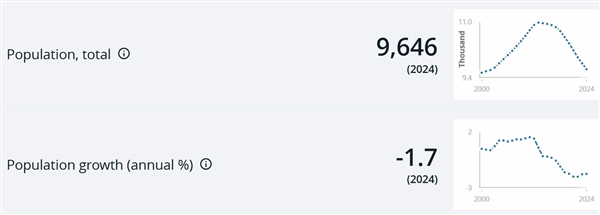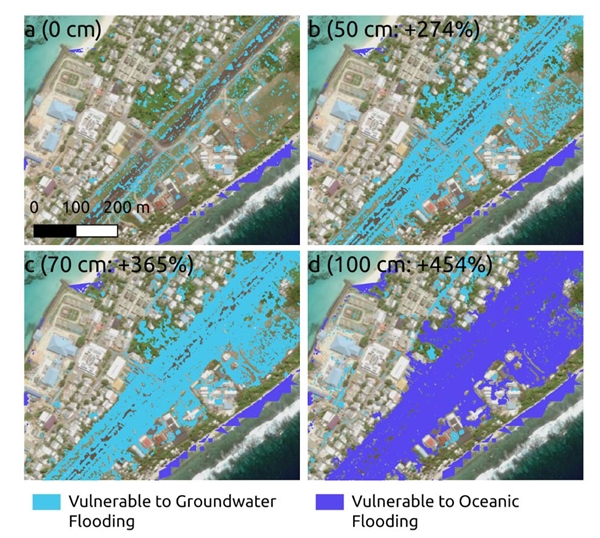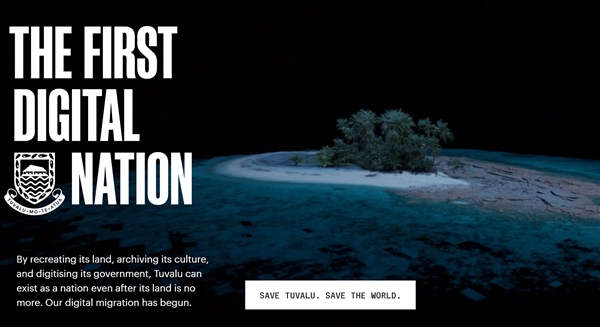“`html
A stark reminder of the increasingly urgent climate crisis surfaced this week, as the tiny Pacific island nation of Tuvalu saw its “nationwide visa application” trend on Chinese social media platform Weibo. The event, likened to a dystopian lottery determining the fate of an entire population, underscores the profound vulnerability of island nations facing rising sea levels.
According to reports citing Australian government data, a lottery for “climate migrant” visas saw significant participation. A total of 2,474 family groups, representing 8,750 Tuvaluan citizens, applied for the opportunity to relocate to Australia permanently. Only 280 individuals will be selected through a lottery system to receive this coveted residency.
With a population estimated between 9,500 and 11,000, and excluding those already holding residency in Australia and New Zealand, the term “nationwide participation” accurately reflects the scale of the event. The lottery highlights the difficult choices faced by citizens of nations on the front lines of climate change.
Tuvalu, comprised of nine coral atolls in the southwestern Pacific, spans a mere 26 square kilometers. Its defining geographical characteristic – its low elevation – leaves it exceptionally vulnerable. The highest point sits just 4.6 meters above sea level, with an average elevation of only 2 meters.
A 2023 NASA assessment paints a concerning picture: Tuvalu’s sea level has risen by 0.15 meters over the past three decades. Projections indicate a further relative sea-level increase of 20 centimeters or more by 2050, potentially reaching 0.5-1 meter by the end of the century.
The report further warns that, under these conditions, the majority of Tuvalu’s landmass and critical infrastructure could be submerged below average high tide levels by 2050. This escalation would compound the impact of tides, waves, and storms, dramatically increasing the frequency and severity of flooding events.
This perilous context led to the signing of the Falepili Union Treaty between Tuvalu and Australia in late 2023, which came into effect last August.
Under the agreement, Australia commits to granting permanent residency to 280 Tuvaluans annually, alongside access to Australian education subsidies, health insurance, family tax benefits, and childcare support. After meeting specific criteria, these residents are also eligible to apply for Australian citizenship. With its unique background, it is also called the world’s first special “climate visa”.
The initial pre-application lottery window ran from June 16th to July 18th of this year, with the selection process commencing on July 25th and scheduled to continue until January 25th of next year.
The World’s First ‘Digital Nation’
Confronted by the rapid threats of sea-level rise, the Tuvaluan government announced ambitious plans in 2023 to essentially “relocate the nation to the metaverse.” This initiative involves digitizing a vast repository of historical, geographical, and cultural information.
In terms familiar to AI industry investors, Tuvalu is effectively creating a “digital twin” of its homeland, meticulously backing up every element of the island. The nation hopes that this digital preservation strategy will allow it to maintain its status as a sovereign state, even in the face of physical disappearance.
According to modern international law, a nation-state requires several key elements: a population, a defined territory, a functioning government, and the capacity to engage in diplomatic relations. For Tuvalu, the first two conditions – population and territory – are at risk of significant challenges in the coming decades.
Therefore, beyond securing its national boundaries in the metaverse, the Tuvaluan government is also exploring the creation of digital passports stored on a blockchain, ensuring that future administrations can continue to operate. These passports would encompass all essential record-keeping functions, from birth and marriage to death registrations.
While the initiative has faced internal dissent and its ultimate international recognition remains uncertain, the project underscores an undeniable truth: as sea levels rise each year, life becomes increasingly difficult, and many island residents will inevitably be forced to relocate.
“`
Original article, Author: Tobias. If you wish to reprint this article, please indicate the source:https://aicnbc.com/5850.html





